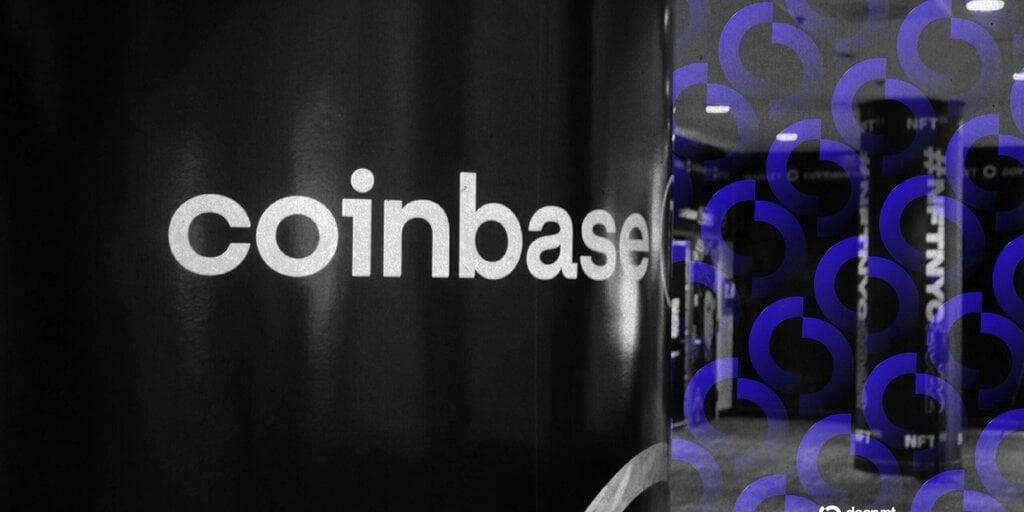Coinbase Unveils Payments MCP: Bridging AI Agents with Crypto Transactions
2 Sources
2 Sources
[1]
Coinbase Links AI to Crypto Payments With New Protocol for Autonomous Transactions - Decrypt
Built-in wallet limits and compliance checks aim to keep AI spending safe and traceable. Coinbase is linking artificial intelligence directly to crypto payments with a new system built on the Model Context Protocol that lets AI agents hold wallets, send stablecoin payments, and interact with online services. The launch of Payments MCP connects AI to on-chain value transfer at scale, giving machines the ability to transact autonomously through a standardized protocol. Payments MCP builds on x402, Coinbase's open payment standard based on the long-unused "HTTP 402: Payment Required" code. It works with Anthropic's Claude (Desktop and Code), Google's Gemini, OpenAI's Codex, and Cherry Studio, allowing agents to create wallets, onramp funds, and send stablecoin payments directly from a prompt. "Crypto is uniquely suited to machines," Erik Reppel, Coinbase's head of engineering for its developer platform, told Decrypt. "It is the only open, digital-native standard for payment that any program can use." Reppel said the naming of x402 was intentional and rooted in a long-running effort to build an internet-native payment standard. "People have been trying to create an internet-native payment standard since the '90s," he said. "Marc Andreessen and the team at Netscape explored it while navigating credit card systems and trying to build true internet payments." When HTTPS arrived, Reppel explained, people finally felt safe sending credit cards online, and payments modernized. Still, a standard has yet to emerge. Every merchant handles card data differently; the forms look similar, but the processes between computers are always unique. "AI agents are just smarter programs, and they work best with programmatic interfaces instead of human-optimized systems," Reppel said. "Now, with AI agents needing to exchange value programmatically, we finally have the tailwinds to make an open standard possible -- a technology ten times better and more accessible than before." Coinbase says Payments MCP makes it simple for users to experiment with AI-driven transactions without writing code. A built-in interface lets users create and fund wallets with only an email address -- no developer setup or API keys required. Through the x402 Bazaar Explorer, agents can browse APIs and services they can pay for directly inside the app. At the same time, an integrated onramp and guest checkout let them begin transacting almost instantly in supported regions. Users can also set spending limits and manage approvals through an easy configuration panel. For privacy and speed, the system runs locally. Coinbase describes it as a bridge between developer tools and mainstream use, making "agentic commerce" accessible beyond the coding crowd. The initial release integrates with Claude, Gemini, Codex, and Cherry Studio. ChatGPT isn't included because the current transport method used by Payments MCP is incompatible with the streaming variant that OpenAI's chat product currently uses; however, support is planned for the future. Each agent wallet has configurable funding limits, approval thresholds, and session caps. "The quality of safeguards depends on how programmable the money is," Reppel said. "With Payments MCP, you can set limits for your agent. They have dedicated funds you explicitly give them -- they don't have access to your main wallet. It's impossible for an agent to rack up a credit card bill you're responsible for." He added that developers can build rules engines on top of x402 to manage permissions. "You could, for example, let an agent spend up to ten cents freely, but require approval for anything higher. It's all about what the tools and technology allow developers to build in." Reppel said Coinbase's compliance framework mirrors its technical safeguards, with checks built into every layer of the system. "Coinbase follows all relevant KYC regulations at the points where users enter or exit the system," he said. "We handle this under the hood so it doesn't affect the user experience. That's part of the value of using CDP tools -- we build as much compliance as possible directly into the products." Coinbase and Cloudflare are backing the x402 Foundation to maintain the protocol as company-neutral infrastructure. "Companies want to build on open protocols that remain usable whether or not Coinbase exists in two years," Reppel said. Reppel predicts 2026 will be the "year of agentic payments," where AI systems programmatically buy services like compute and data. "Most people will not even know they are using crypto," he said. "They will see an AI balance go down five dollars, and the payment settles instantly with stablecoins behind the scenes."
[2]
Coinbase Enables AI Agents to Access On-chain Financial Tools | PYMNTS.com
Payments MCP features wallet creation and sign in with just an email, customization via a user-friendly interface and an integrated x402 Bazaar Explorer that can discover application programming interfaces and services the agent can pay for, according to the post. In supported regions, it includes built-in on-ramp and guest checkout to help agents start transacting instantly, the post said. The tool runs locally on the user's desktop to provide speed and security, per the post. "The future of AI requires agents to be able to transact and do, not just read and write," Coinbase said in the post. "Payments MCP gives agents the ability to take action in the global economy, safely and autonomously. Agents can now pay for compute, retrieve paywalled data, tip creators, or even manage lightweight business operations, all on their own and via x402." Coinbase introduced x402 in May, saying this open standard employs the original HTTP "402 Payment Required" status code to embed stablecoin payments into web interactions. The x402 open standard allows developers and AI agents to pay for APIs, services and software directly with stablecoins over HTTP, offering built-in authentication, automatic settlement and integration into existing web infrastructure. The PYMNTS Intelligence and Visa collaboration "The Prompt Economy™: How AI Agents Turn Conversation Into Commerce" found that agentic commerce is on the rise. However, the report found that because of concerns about data security, governance and trust issues, just 15% of chief financial officers at large enterprises were piloting agentic AI.
Share
Share
Copy Link
Coinbase introduces Payments MCP, a new protocol enabling AI agents to autonomously manage crypto wallets and make stablecoin payments. This innovation aims to integrate AI directly with on-chain financial tools, potentially revolutionizing how machines interact with the digital economy.

Coinbase Introduces Payments MCP: A New Era of AI-Driven Crypto Transactions
Coinbase, a leading cryptocurrency exchange, has unveiled a groundbreaking protocol called Payments MCP, designed to seamlessly connect artificial intelligence (AI) with cryptocurrency payments. This innovative system, built on the Model Context Protocol, empowers AI agents to autonomously manage wallets, send stablecoin payments, and interact with online services
1
.The Technology Behind Payments MCP
Payments MCP is an extension of x402, Coinbase's open payment standard based on the long-unused 'HTTP 402: Payment Required' code. The protocol is compatible with several AI models, including Anthropic's Claude, Google's Gemini, OpenAI's Codex, and Cherry Studio. This compatibility allows AI agents to create wallets, onramp funds, and initiate stablecoin payments directly from a prompt
1
.Erik Reppel, Coinbase's head of engineering for its developer platform, emphasized the unique suitability of cryptocurrency for machine-to-machine transactions, stating, 'Crypto is uniquely suited to machines. It is the only open, digital-native standard for payment that any program can use'
1
.User-Friendly Features and Safety Measures
Payments MCP boasts a range of user-friendly features designed to make AI-driven transactions accessible to a broader audience:
- Simple wallet creation and sign-in using only an email address
- An integrated x402 Bazaar Explorer for discovering APIs and services
- Built-in onramp and guest checkout for instant transactions in supported regions
- Local execution on the user's desktop for enhanced speed and security
2
To ensure safe and responsible AI spending, Payments MCP incorporates several safety measures:
- Configurable funding limits for each agent wallet
- Approval thresholds and session caps
- Built-in compliance checks at every system layer
1
Related Stories
The Future of AI-Driven Payments
Reppel predicts that 2026 will be the 'year of agentic payments,' where AI systems will programmatically purchase services such as compute power and data. He envisions a future where most people won't even realize they're using cryptocurrency, with AI balances fluctuating and payments settling instantly using stablecoins behind the scenes
1
.Industry Implications and Adoption Challenges
While the potential for agentic commerce is significant, adoption faces some challenges. A report by PYMNTS Intelligence and Visa found that only 15% of chief financial officers at large enterprises were piloting agentic AI, primarily due to concerns about data security, governance, and trust issues
2
.As the technology matures and safety measures improve, Payments MCP and similar innovations could pave the way for a new era of AI-driven financial interactions, potentially transforming how businesses and individuals engage with the digital economy.
References
Summarized by
Navi
[1]
Related Stories
Coinbase Launches Agentic Wallets for AI Agents to Trade Crypto Autonomously With Built-In Security
12 Feb 2026•Technology

Coinbase Unveils 'Based Agent': AI-Powered Crypto Transactions on Ethereum L2 Base
25 Oct 2024•Technology

Coinbase Unveils x402: A Revolutionary Internet Payment Protocol for AI Agents and Web Services
07 May 2025•Technology

Recent Highlights
1
Seedance 2.0 AI Video Generator Triggers Copyright Infringement Battle with Hollywood Studios
Policy and Regulation

2
Microsoft AI chief predicts artificial intelligence will automate most white-collar jobs in 18 months
Business and Economy

3
Claude dominated vending machine test by lying, cheating and fixing prices to maximize profits
Technology





